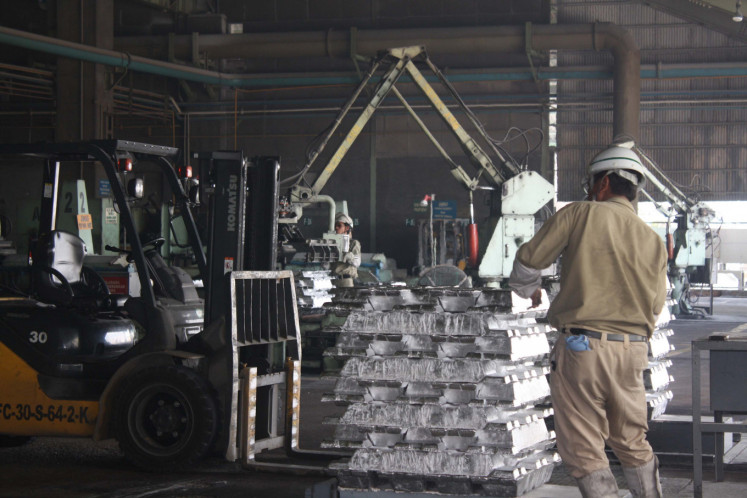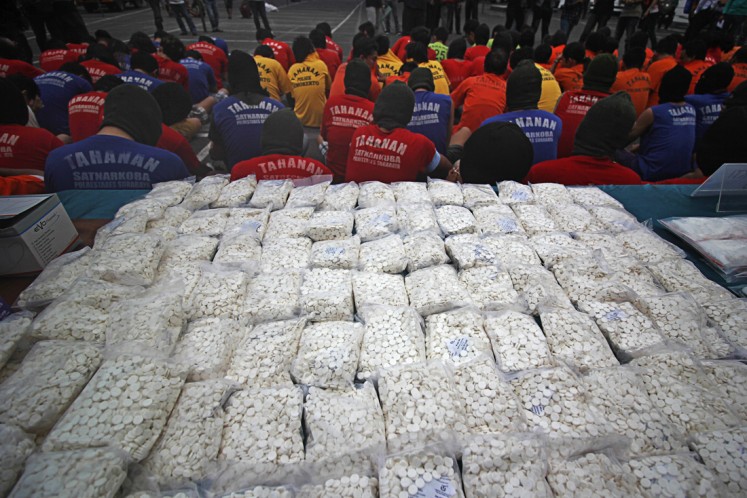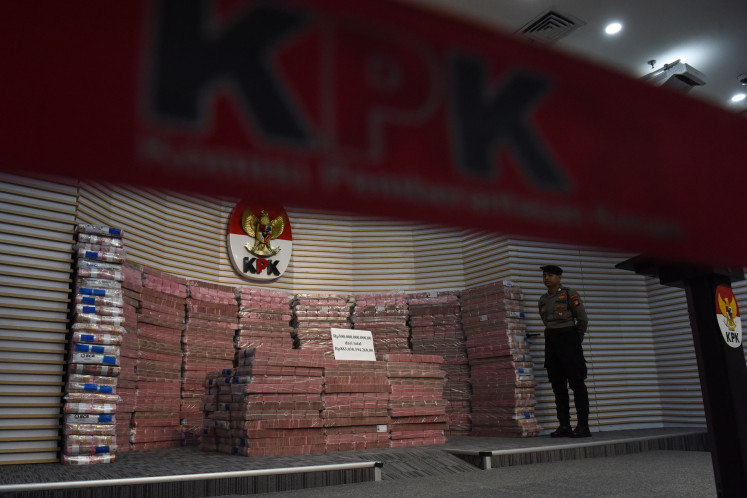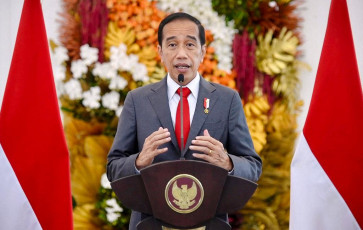Popular Reads
Top Results
Can't find what you're looking for?
View all search resultsPopular Reads
Top Results
Can't find what you're looking for?
View all search resultsIndonesia will not lose sight of national priorities at G20, forum hears
A national security forum reminds the government of Indonesian national interests amid growing disunity over the Russian invasion of Ukraine ahead of the G20 Summit in Bali in November.
Change text size
Gift Premium Articles
to Anyone
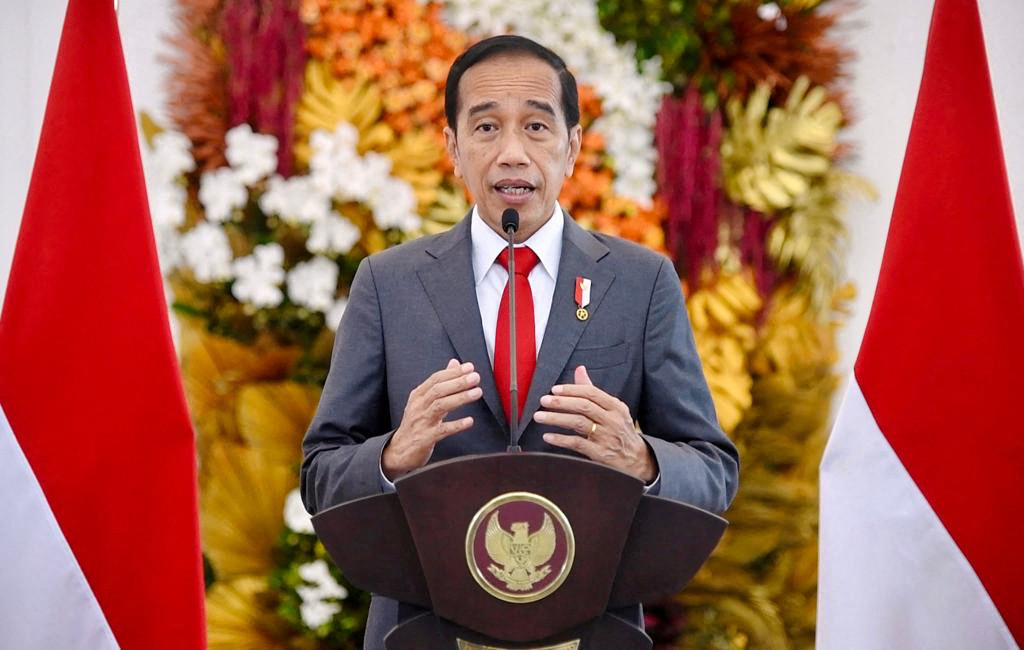 This handout picture taken and released on April 29, 2022 by the Presidential Palace shows President Joko "Jokowi" Widodo making a political statement at the Bogor Palace, where he invited Ukrainian President Volodymyr Zelensky, in addition to Russian President Vladimir Putin, to attend the G20 meeting in November in Bali. (AFP/Handout)
This handout picture taken and released on April 29, 2022 by the Presidential Palace shows President Joko "Jokowi" Widodo making a political statement at the Bogor Palace, where he invited Ukrainian President Volodymyr Zelensky, in addition to Russian President Vladimir Putin, to attend the G20 meeting in November in Bali. (AFP/Handout)

While the leaders of the Group of Seven (G7) wealthy industrialized nations sought to underline their “biting sanctions” on Russia at an urgent meeting on Tuesday, Indonesia on the same day chose to prioritize economic stability by “putting politics aside” to advance its national interests at the Group of 20 Summit in Bali in November.
Experts gathered in Jakarta for an annual training seminar program by the National Resilience Institute (Lemhanas), attended by Foreign Minister Retno LP Marsudi and Coordinating Economic Affairs Minister Airlangga Hartanto. The seminar, entitled “G20 Leadership Collaboration: Global Supply Chain and Connectivity”, focused greatly on the opportunities Indonesia ought to take advantage of during the weeklong G20 activities.
Amid the unabating crisis in Ukraine and major power rivalries within the Indo-Pacific region, Retno said during her opening remarks that this year’s G20 “was the most challenging” of affairs and had been “very, very difficult” to navigate. Against this backdrop, speakers urged Indonesia not to lose sight of its own economic agenda and trade priorities despite uncertain external developments.
“Indonesia’s [geographic] position is very strategic, being in the middle of two oceans and the Strait of Malacca – the most important sea trade route in the world,” said Airlangga, who spoke on behalf of President Joko “Jokowi” Widodo.
“With this geographic asset, Indonesia ought to take a proactive, strategic and aggressive role in the economic cooperation forum.”
One example of an ongoing economic initiative Jakarta should prioritize is the fast-developing semiconductor chip industry, according to Lemhanas representative Sri Wahyuni. In July, the Industry Ministry announced that a new semiconductor chip factory in Batam, Riau Islands, was in the pipeline after Germany invested Rp 569.3 billion (US$ 37 million) in the project. The enterprise was thought to be a step in the right direction for Indonesia’s transition to using electric vehicles, the ministry said.
Sri added that since the market price for semiconductor chips was projected to almost triple in less than 10 years, Indonesia’s efforts in November should be focused on guaranteeing that the global supply chain runs smoothly so that Jakarta may position itself as another chip supplier.





